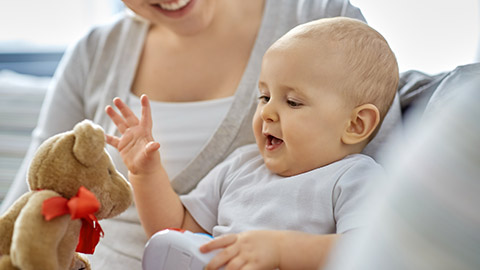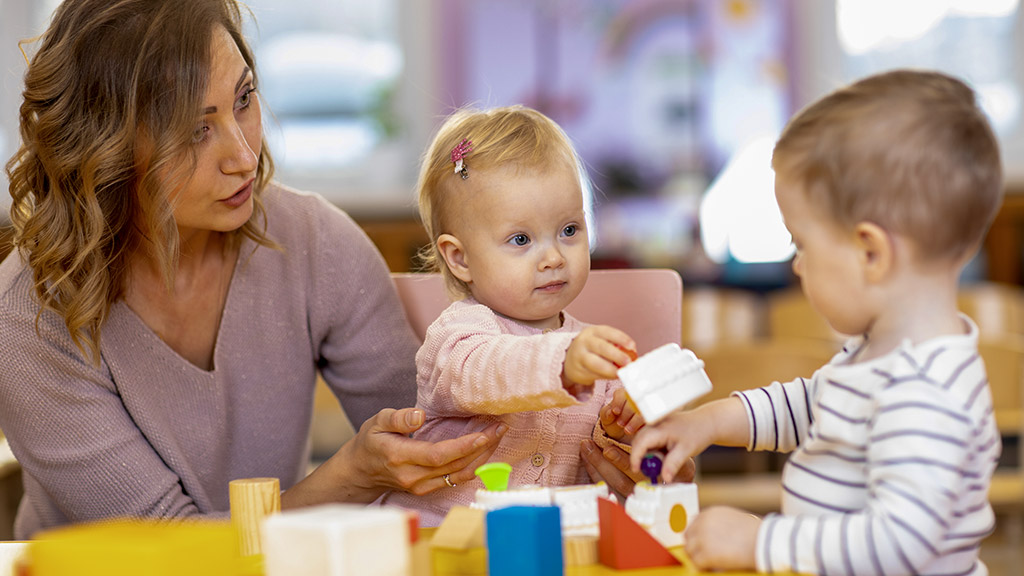NO SIGNIFICANT LEARNING OCCURS WITHOUT A SIGNIFICANT RELATIONSHIP.James Comer
This module will help you understand the skills and knowledge required to communicate and interact respectfully with children and to guide their behaviours in ways that support their agency, positive sense of self and self-regulation.
In this module you will learn about:
- Communicating positively and respectfully during interactions with children between the ages of birth to 6 years that collectively include:
- Group interactions
- Mealtimes
- Play opportunities
- Physical care routines
- Sustained individual interactions
- Situations where children are reluctant to participate
- Situations of conflict
- Time of transition
- Documenting and reflecting on observations about the ways in which relationships are developed in the workplace

Research shows relationships are central to children developing acceptance, self-esteem and higher functioning thinking skills that contribute to positive learning and life outcomes.
There are so many important influences in a child’s early learning journey: parents, carers, family members, friends, peers and teachers. Through relationships with parents, family members and carers, children learn about themselves and their world.
Studies show that outside of family, educators are the second most influential factor in a child’s learning outcomes and future overall wellbeing. And the effects go far beyond a child’s ability to read and write.
It is during the first five years of a child’s life where the crucial building blocks for their emotional, social, and cognitive skills are put in place. So, the important role of educators during this time cannot be overstated.
The important role of early education is so fundamental to a child’s prospects – and that of the community in which they live – even the United Nations Educational, Scientific, and Cultural Organisation (UNESCO) places significant focus on early literacy and learning. According to UNESCO, “Early Childhood Care and Education (ECCE) aims to develop a child’s emotional, social, physical, and cognitive needs to build a strong foundation for well-being and learning throughout the days of their life. Through ECCE, it is possible to nurture capable, caring, and responsible citizens in society.”1
By nurturing every part of a child, great educators help to build a strong foundation for emotional, mental, and physical development, which are the building blocks for life.
Relationships are a key factor in driving positive learning outcomes for children. It’s important for a child to form relationships and socialise with people other than their parents and close family members. When children develop friendships they learn valuable lessons about trust, teamwork, collaboration and compromise. These are all important skills that help them throughout their lives, and skills which they learn from both friendships with their peers and by observing influential role models in their lives, such as their educators.
Childcare settings with a focus on high-quality education provide children with the opportunity to learn about and practice cooperation, sharing with others, and waiting their turn. In an environment with other children – and being gently guided by their educators about appropriate behaviour in different situations –children will soon pick up these important life skills. Learning to operate as part of a team and to be responsible for own individual actions are skills that are learnt from a very young age. Great educators know how to guide children on this path to teamwork and collaboration and they also role model and guide social interactions amongst children, with other educators and with members of the community.
Watch
The following 6-minute video published by KidsMatter Australia explains the importance of relationships in early years:
Read
This article, Relationships and child development, from raisingchildren.net.au explains the correlation between relationships and child development, emphasising the importance of positive role modelling and attachments built.
WATCH
The following 1-minute video is a powerful video about how children mimic the behaviour of people they have a strong attachment with:
Important
Make your influence positive. A single word or small gesture can make a long-lasting impression on a child that they may remember even when they grow older.
Reflection
- Can you remember your first teacher? Is this a positive or negative memory? Why?
- Do you remember when you were praised in front of your peers as a child? How did you feel?
Check your understanding
Read the following statements and decide whether they are TRUE or FALSE:
